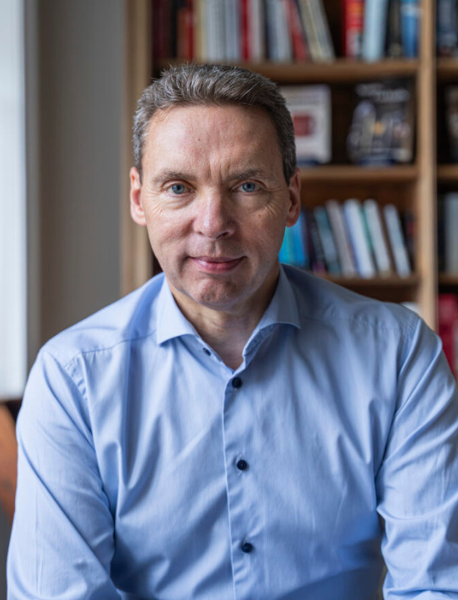Opening doors with language learning
Nigel Portwood
“It’s clear from these stories that language is more than the words in a book; it’s essential to how we express our beliefs and values, and how we share our ideas. It can also open the door to new opportunities, new perspectives, and new people.”

There’s no denying that learning a language can be challenging. It requires memorizing words and grammatical structures that aren’t familiar to you, having the confidence to speak in front of others, and persevering when you make mistakes, which is inevitable. It can be a daunting journey to embark on, but in those moments when you get it right—when you find the words—the benefits of having a second language are enormous.
For example, research from the OECD found that students who speak more than one language have higher career and educational expectations than those who are monolingual. Language learning has also been linked with various cognitive benefits such as developing an increased capacity for problem-solving and multi-tasking. Even in children as young as seven months, it can enhance the ability to adjust to environmental changes—a skill increasingly necessary when navigating today’s uncertain world.
Recently, we asked our colleagues to share their own experiences of when they ‘found the words’ as part of a broader effort to bring the English learning experience to life. An extraordinary amount of people took part, recounting a time when language learning had clicked into place for them, and the impact this had on their lives. Here are just a few of the stories that were shared:
“The language learning journey is a little bumpy one. We learn, we forget, we try, we fail, and we succeed. I still remember the times I could incorporate new vocabulary or avoid the mistakes I insisted on doing. Such as pronouncing the word fifth (which I insisted on adding the second F and pronouncing the T), mispronouncing year and ear and the word certificate. The feeling of saying something right and being understood is great.” – Selma Trus, Head of Regional Marketing (Americas), Brazil
“I remember the first time I travelled abroad on my own. I travelled to England. It was 2009. I was 27 at that time. I was so excited, so scared, and so away from home and from those teachers who taught me how to express myself in English, anxious to find the words to communicate with those strangers. I was there to teach Spanish. Coming from a rural community in Mexico, I just wanted to survive as a person and as a teacher. But those words learnt at University with those dictionaries and those coursebooks helped me to find the words to make my first friend there and to connect with those pupils who saw me trying to find the words to share knowledge about my own language, Spanish, and my own culture. Learning English as a second language changed my life forever.” – Margarito Jacome, Educational Consultant, Mexico
“Learning English seemed very artificial to me for the first few years – answering questions for the text that has just been read. I was so happy when my parents bought an English course for me and I could live with a local family. At last I was speaking because I wanted to communicate something! Finding the right words to tell my landlady what I would like to eat for breakfast, how was my day on a course was so much fun for me. When I got back home I was a different person – not so worried about mistakes when I was speaking. Now I was concentrated on finding the words to be understood and every successful conversation was such a pleasure!” – Elżbieta Święcicka, Senior ELT Consultant, Poland
“I’m Italian, I’ve been living in Oxford since 2004 and I still get very excited when I learn a new English word. Usually I need to pick up an Italian book before going back home as my sister put it “I forgot Italian”: all languages are constantly evolving therefore we are constantly learning.” – Lilia Bonacorsi, Ebook and Digital Products Executive, UK
It’s clear from these stories that language is more than the words in a book; it’s essential to how we express our beliefs and values, and how we share our ideas. It can also open the door to new opportunities, new perspectives, and new people. With 2bn people learning English and that number only set to grow, language learning is an important skill for bringing together different cultures and communities and forging connections through a common language.

